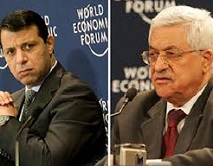
Navigating Syria: The Impossible, Indispensable Mission
While on the left Palestine has brought many likeminded people together, Egypt has fragmented that unity, and Syria has crushed and pulverized it to bits.

While on the left Palestine has brought many likeminded people together, Egypt has fragmented that unity, and Syria has crushed and pulverized it to bits.

For years, Palestinian factions have strived for unity, and for years unity has evaded them. But is it possible that following several failed attempts, Fatah and Hamas have finally found that elusive middle ground? And if they have done so, why, to what end, and at what cost?

The state of US foreign policy in the Middle East, but also around the world, cannot be described with any buoyant language. In some instances, as in Syria, Libya, Egypt, the Ukraine, and most recently in Palestine and Israel, too many calamitous scenarios have exposed the fault lines of US foreign policy.

When late Palestinian leader Yasser Arafat was confined by Israeli soldiers to his headquarters in the West Bank city of Ramallah, Mohammed Dahlan reigned supreme.

Long before the Boycott, Sanctions and Divestment campaign inched slowly from the fringes of global solidarity with Palestinians to take center stage, Tony Benn had been advocating a boycott of Israel with unrestricted conviction, for years.

In the early days of the Syrian uprising-turned civil war three years ago, the writing on the wall of it becoming an intricate regional and international conflict was there for all to see. Palestinians in Syria were likely to find themselves a pawn in a dirty war, but few could have predicted the magnitude of the crisis, and perhaps, few cared.
Copyright Toward Freedom 2019